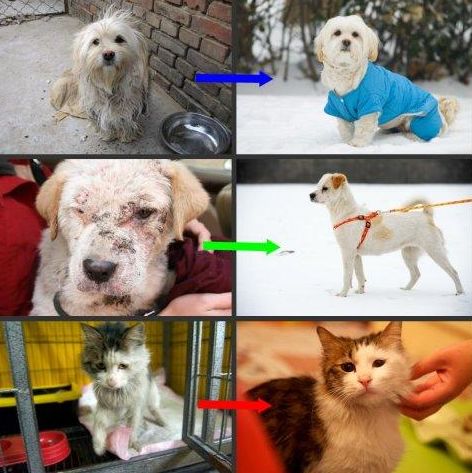韩国宠物服务计划
- 生活百科
- 2024-05-17
- 540
Title: Understanding Monthly Wages in South Korean Veterinary Hospitals
In South Korea, the monthly wages in veterinary hospitals can vary based on several factors, including experience, location, and the type of facility. Let's delve into the specifics to understand the salary landscape for veterinarians and veterinary staff in South Korea.
Factors Influencing Monthly Wages:
1.
Experience and Qualifications:
Entrylevel veterinarians or veterinary staff may start with lower salaries compared to those with years of experience or specialized qualifications.
Veterinarians with advanced degrees, specialty certifications, or additional training may command higher wages.
2.
Location:
Monthly wages can significantly differ between urban and rural areas. Veterinary hospitals in major cities like Seoul or Busan may offer higher salaries to attract talent, reflecting the higher cost of living.

Rural clinics may offer lower wages but might compensate with other benefits like housing allowances or a lower cost of living.
3.
Type of Facility:
Wages can vary depending on whether the veterinarian works in a private practice, a corporateowned clinic, a universityaffiliated hospital, or a governmentrun institution.
Corporateowned clinics may offer standardized salary packages, while private practices might negotiate wages based on individual performance and responsibilities.
4.
Job Role and Responsibilities:
Veterinarians specializing in specific areas such as surgery, dentistry, or internal medicine may earn higher salaries due to their expertise.
Veterinary technicians, assistants, and administrative staff may have different salary ranges based on their roles and responsibilities within the hospital.
Average Salary Range:
While exact figures can fluctuate, here's a rough estimate of the monthly salary range for various positions in South Korean pet hospitals:
Veterinarian
:Entrylevel: ₩2,000,000 ₩3,500,000
Midcareer: ₩3,500,000 ₩6,000,000
Experienced/Specialist: ₩6,000,000 ₩10,000,000
Veterinary Technician/Assistant
:Entrylevel: ₩1,500,000 ₩2,500,000
Midcareer: ₩2,500,000 ₩4,500,000
Experienced/Senior: ₩4,500,000 ₩7,000,000
Administrative Staff
:Entrylevel: ₩1,300,000 ₩2,000,000
Midcareer: ₩2,000,000 ₩3,500,000
Experienced/Senior: ₩3,500,000 ₩6,000,000
Negotiating Strategies and Additional Benefits:
1.
Research and Benchmarking:
Before negotiating, research average salaries for similar positions in your area to understand the market rate.
Highlight any unique skills, certifications, or experience that justify a higher salary.
2.
Emphasize Value Proposition:
Discuss how your expertise can benefit the hospital, such as attracting new clients, improving patient care, or increasing revenue through specialized services.
3.
Consider Total Compensation:
Inquire about additional benefits like health insurance, retirement plans, bonuses, professional development opportunities, and flexible work arrangements.
4.
Professional Networking:
Networking with peers and industry professionals can provide insights into salary trends and potential job opportunities.
5.
Evaluate WorkLife Balance:
Consider factors beyond salary, such as workload, work hours, workplace culture, and opportunities for advancement.
In conclusion, while the monthly wages in South Korean pet hospitals vary based on several factors, understanding the influencing factors and employing effective negotiation strategies can help veterinarians and veterinary staff secure competitive compensation packages that reflect their skills and contributions to the profession.
上一篇
明日之后负重犬是哪只
下一篇
菏泽房产信息网官网













